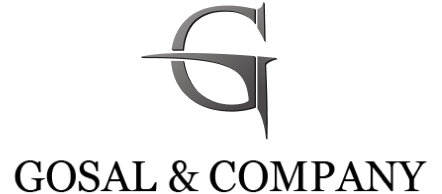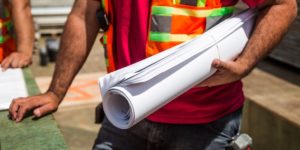If you have experienced an injury at work and filed a Workers’ Compensation Board (“WCB”) claim, strong medical evidence is integral to ensuring you receive the compensation you deserve. This article aims to assist with understanding why medical evidence is helpful in a WorkSafeBC claim by explaining the types of medical evidence, how to gather it, and the challenges that may arise when obtaining medical evidence.
Why is Medical Evidence Helpful?
In a WCB claim a lack of medical evidence linking the injury and workplace activities can hinder the claims process and may lead to a claim being denied. Once a claim has been accepted, medical evidence becomes necessary in a variety of situations, including, but not limited to: appeals; determining return to work abilities and options; assessing permanent disability awards; and when there may be diagnoses that are unknown or in dispute.
Detailed medical records are helpful in establishing the severity of a worker’s injury, as well as the timeline of their injury and their recovery process. When assessing a claim, WCB looks to medical evidence to determine the assistance a worker needs and the compensation they should receive.
Types of Medical Evidence
Medical evidence comes from experts who are qualified to provide opinions on a worker’s injury and condition. Medical evidence can come from doctors or treatment providers such as physiotherapists, kinesiologists, chiropractors, and occupational therapists.
Medical evidence is integral to the WCB claims process and comes in a variety of forms, including:
- Records from Emergency Room Visits: Emergency room and hospital reports can help strengthen a WCB claim as they may contain important information about symptoms, concerns, and treatment relating to a workplace injury.
- Diagnostic Test Results: Diagnostic imaging, such as CT scans, MRIs and X-Rays, as well as test results, can assist in clarifying diagnoses and establishing the extent of an injury.
- Treatment Plans: If a medical professional suggests a specific treatment plan for a workplace injury it can be beneficial to have it documented and on file, especially if coverage is for the treatment plan is being requested.
- Functional limitations: Medical evidence documenting a worker’s functional limitations can be valuable when assessing return to work options and addressing whether a worker is entitled to vocational rehabilitation assistance.
Medical evidence on file can be reviewed by WorkSafe medical advisors when determining if treatment options or diagnoses are medically reasonable or plausible. Having detailed medical records on file can assist with establishing what health care benefits and assistance an injured worker requires and is entitled to.
How to Gather Medical Evidence
Medical evidence can be gathered in a number of ways. WCB may request medical evidence from health care providers, and if medical treatment is provided through WCB, then medical reports may be automatically sent to WorkSafeBC to be added to a worker’s claim file. If a worker has had treatment outside of WCB, or if they notice that medical information is missing from their file, they can reach out to their health care providers and request that information directly.
If a worker has medical evidence they would like to submit to WorkSafeBC, they can do so through their online services account. Documents can also be submitted by using WorkSafeBC’s document uploader, or via mail, fax or in person.
Potential Challenges in Obtaining Medical Evidence
Obtaining medical evidence can be a time consuming and expensive process. While medical records can be requested from health care providers, there is often a cost associated and the wait time for the documents can be long. Complications can also arise from unclear communication from health care providers, and difficulty obtaining copies of medical reports.
There is also the commonly asked question, “what if I don’t have any medical evidence?” A lack of medical evidence on file can make it difficult for a worker to receive proper compensation for their workplace injury, however there are some steps that can be taken to address the issue.
- Contact your Health Care Providers: If you sought medical assistance after a workplace injury you can reach out to your doctor, or any health care professional who provided treatment to see if they can provide any chart notes, medical records, imaging reports, or other medical evidence pertaining to your claim. It is also important to regularly report your symptoms to your doctor and treatment providers.
- Legal Assistance: Seeking legal assistance can help you get the advice you need to understand what type of medical evidence may be required in relation to your claim. An experienced WCB lawyer can also assist with requests for documents from health care providers and advise you if further medical evidence is needed. If you do not have medical evidence on file and are looking to appeal an issue on your claim, then getting an expert medical opinion may be beneficial. Obtaining legal assistance can help you understand the costs associated with medical-legal reports, aid you in finding an independent medical examination provider, and advise you on the potential for requesting reimbursement from WCB for the provision of reasonable and necessary medical reports.
Why Choose Gosal & Company for Your WCB Claim?
Gosal & Company has a team of experienced WCB lawyers and has been specializing in WCB claims for over 31years. The legal team has advocated for workers in a number of successful cases, including helping a client obtain a 100% Loss of Earnings award by presenting strong medical evidence to WCAT, so the full extent of the client’s impairments could be properly understood. Understanding what medical evidence is required to advance a WorkSafeBC claim can be stressful and confusing. Having a trusted and reliable WCB lawyer on your side can help you navigate the process and get you the compensation you are entitled to.
If you would like to schedule a telephone consultation appointment, please call us at (604) 591-8187. You can also send a private and confidential message using our contact form or an email to info@gosalandcompany.com.




